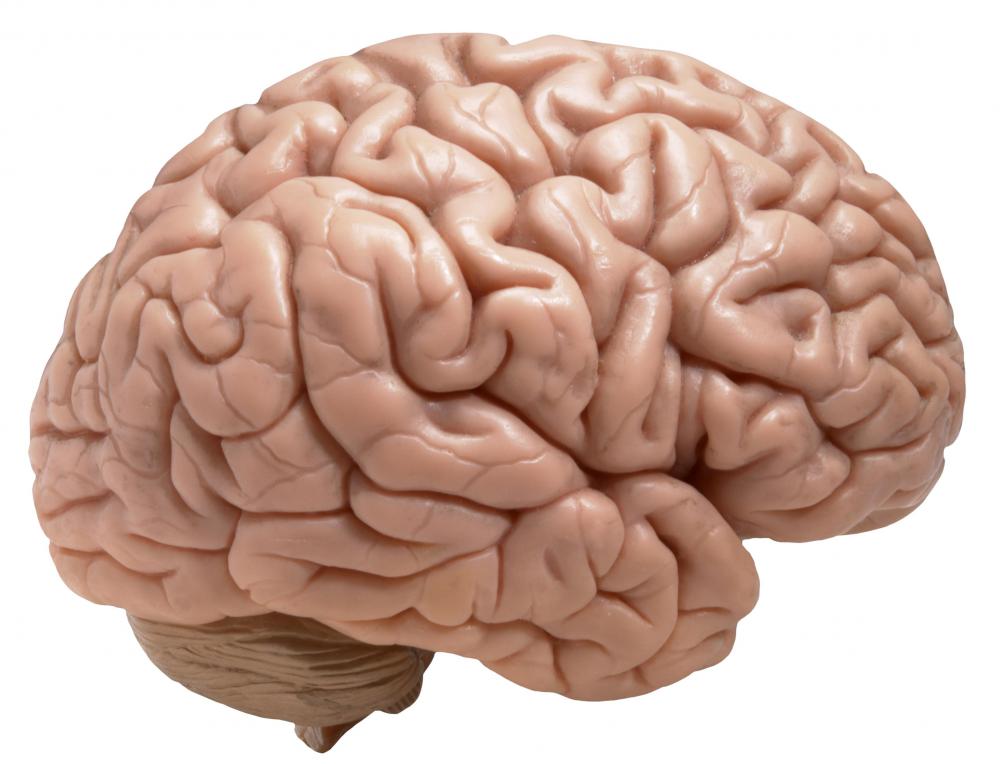At WiseGEEK, we're committed to delivering accurate, trustworthy information. Our expert-authored content is rigorously fact-checked and sourced from credible authorities. Discover how we uphold the highest standards in providing you with reliable knowledge.
What Are the Different Types of Neurotransmitters?
The human brain contains billions of brain cells called neurons. Between these neurons are synapses and many types of neurotransmitters responsible for sending out chemical messages to the body. The exact number is the subject of some debate, but many neuroscientists estimate that there are thousands of neurotransmitters, each with its own role in how people receive and respond to signals from the brain. Neurotransmitters are divided into three main categories: biogenic amine neurotransmitters, peptide neurotransmitters, and amino acid neurotransmitters.
Biogenic amines are some of the most widely-studied types of excitatory neurotransmitters. They are abundant in most people and are responsible for elevating moods and making people feel good in general. Some examples of important biogenic amines include dopamine, noradrenaline, and serotonin, which create pleasant sensations like natural euphoria, pain control, and sexual arousal. People with deficiencies of these types of neurotransmitters typically suffer from a lack of energy and irritability, or more seriously, depression, stress, and various levels of anxiety. If the body cannot produce a sufficient amount of biogenic amines, adding glutamine to the diet or a vitamin regimen may help to increase the brain’s natural production.

Neuroscience places a lot of importance on sufficient amounts of amino acids. Normally, the human body has an abundant supply of these types of neurotransmitters, which are crucial elements of the protein that humans need to survive. Gamma-aminobutyric acid (GABA) is an inhibitory type of neurotransmitter found throughout the central nervous system. Its inhibitive characteristics help to block potentially traumatic brain signals while increasing feelings of relaxation, calm, and focused control. By contrast, the amino acid glutamate is an excitatory neurotransmitter that plays a role in memory and learning, and may be dangerous should the body accumulate an unusually large supply.

Like other neurotransmitters, peptides help to create feelings of well-being in the mind and body. They are also associated with overall mood regulation and appetite control. Peptide neurotransmitters include complex chemicals like hormones, endorphins, and many more. Substance P is an inhibitory peptide neurotransmitter that modifies the way in which the body perceives pain. Additionally, some peptides are also opioids, producing euphoric effects similar to those experienced by heroine users and with the same propensity for addiction.

There are also many other minor types of neurotransmitters. While these fill a role in human physiology, neuroscientists consider them of lesser importance in comparison to the major categories. Two examples include a small molecule compound called acetylcholine and anandamide, an endogenous cannabinoid neurotransmitter which produces effects similar to marijuana.
AS FEATURED ON:
AS FEATURED ON:














Discuss this Article
Post your comments